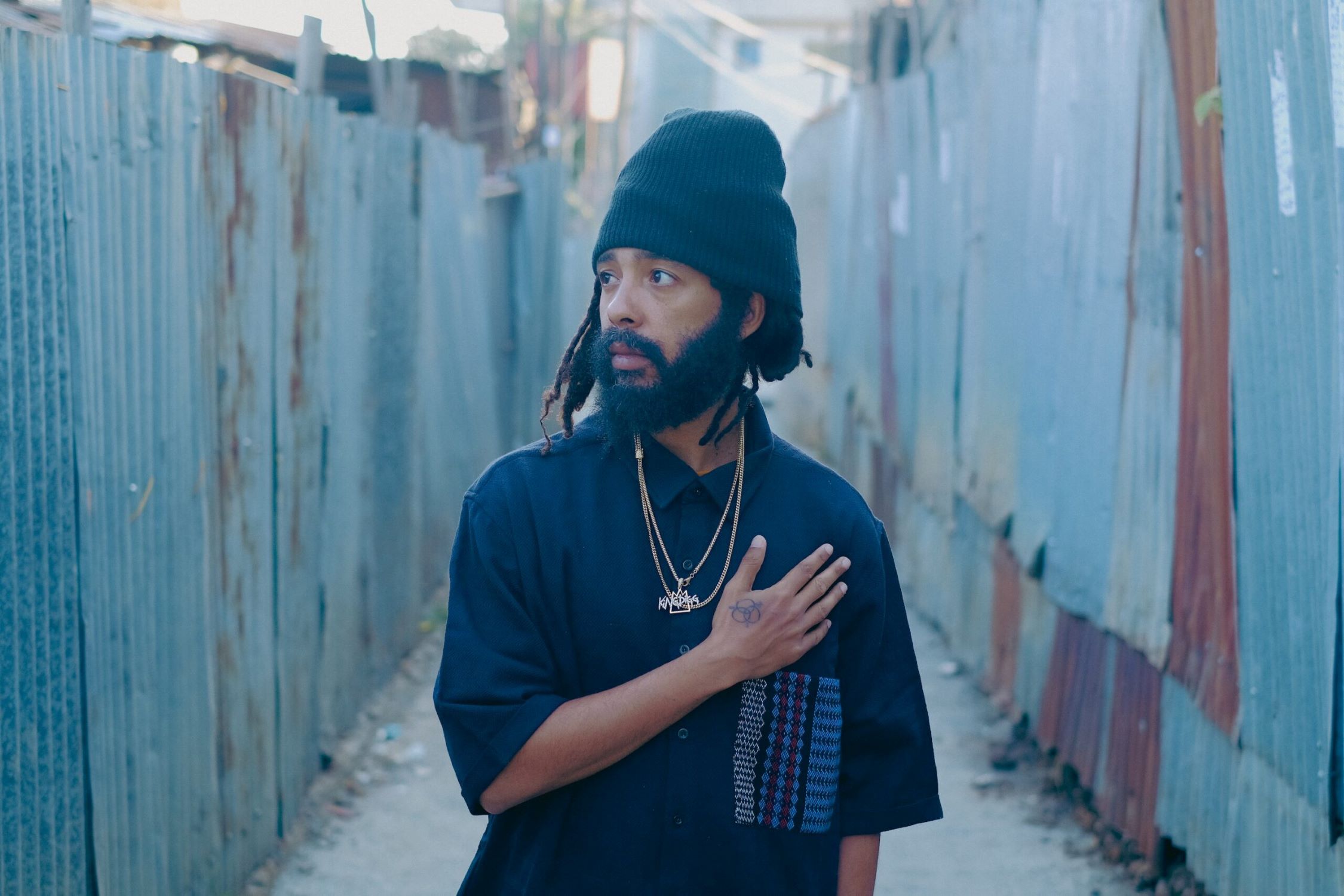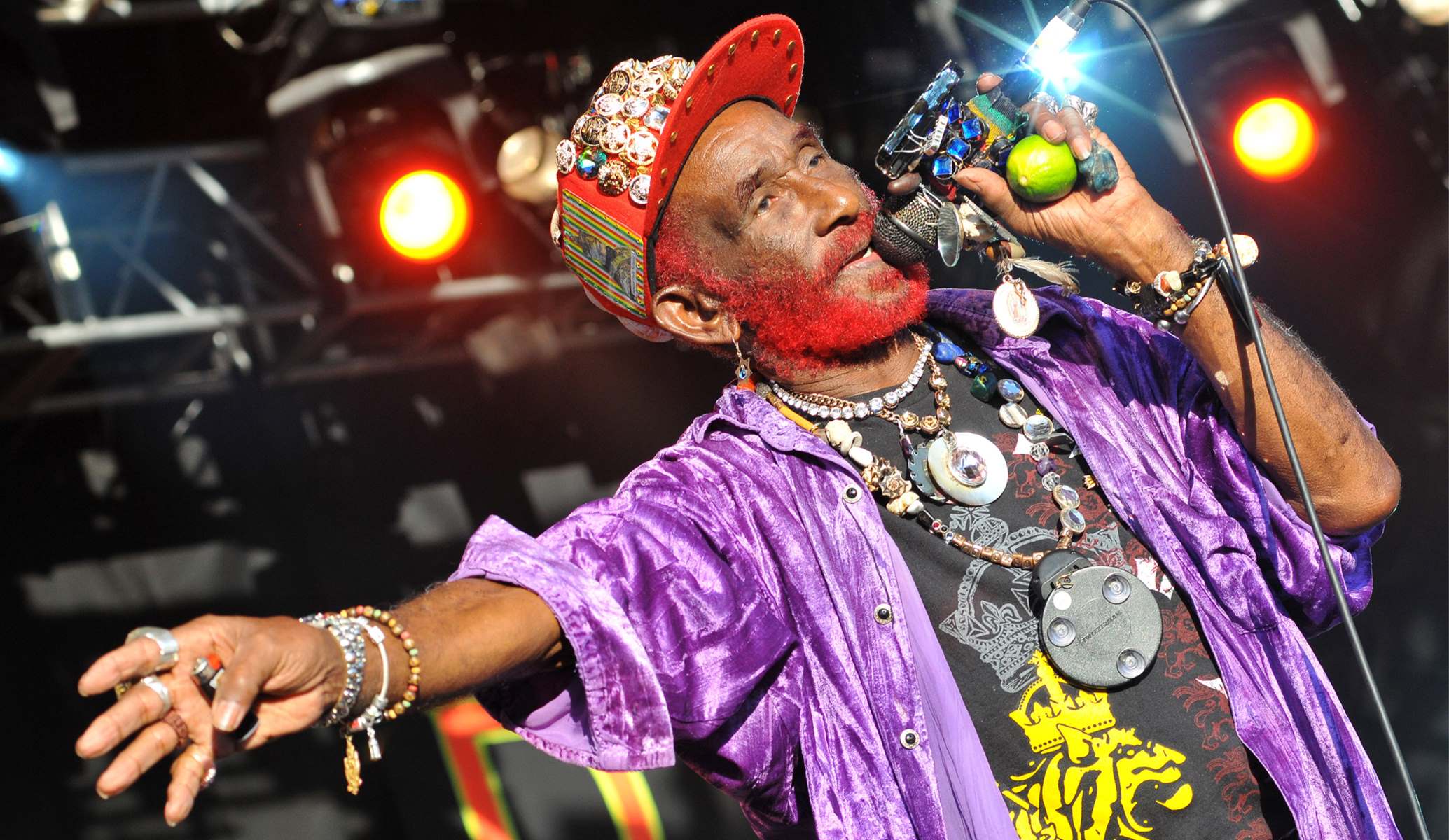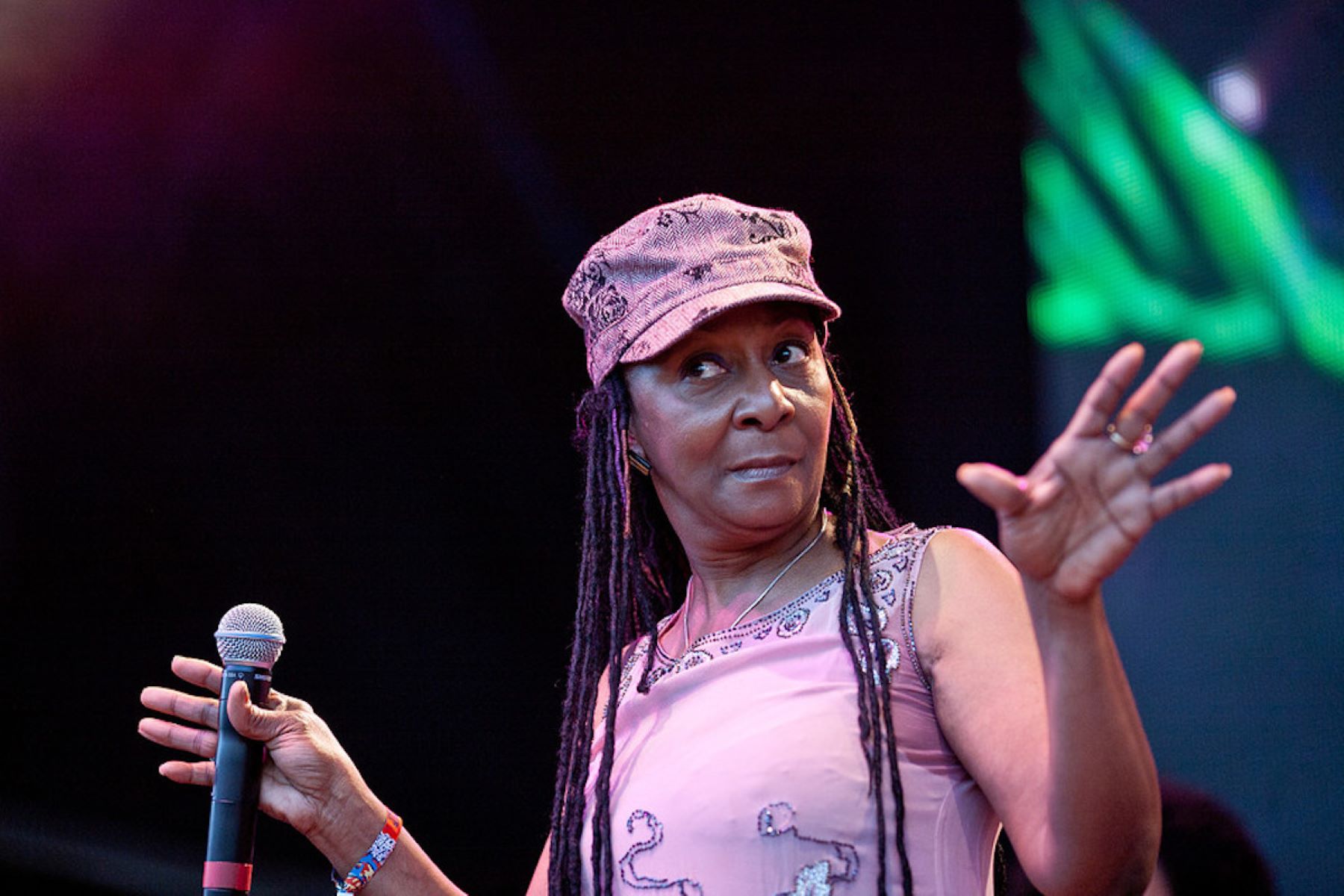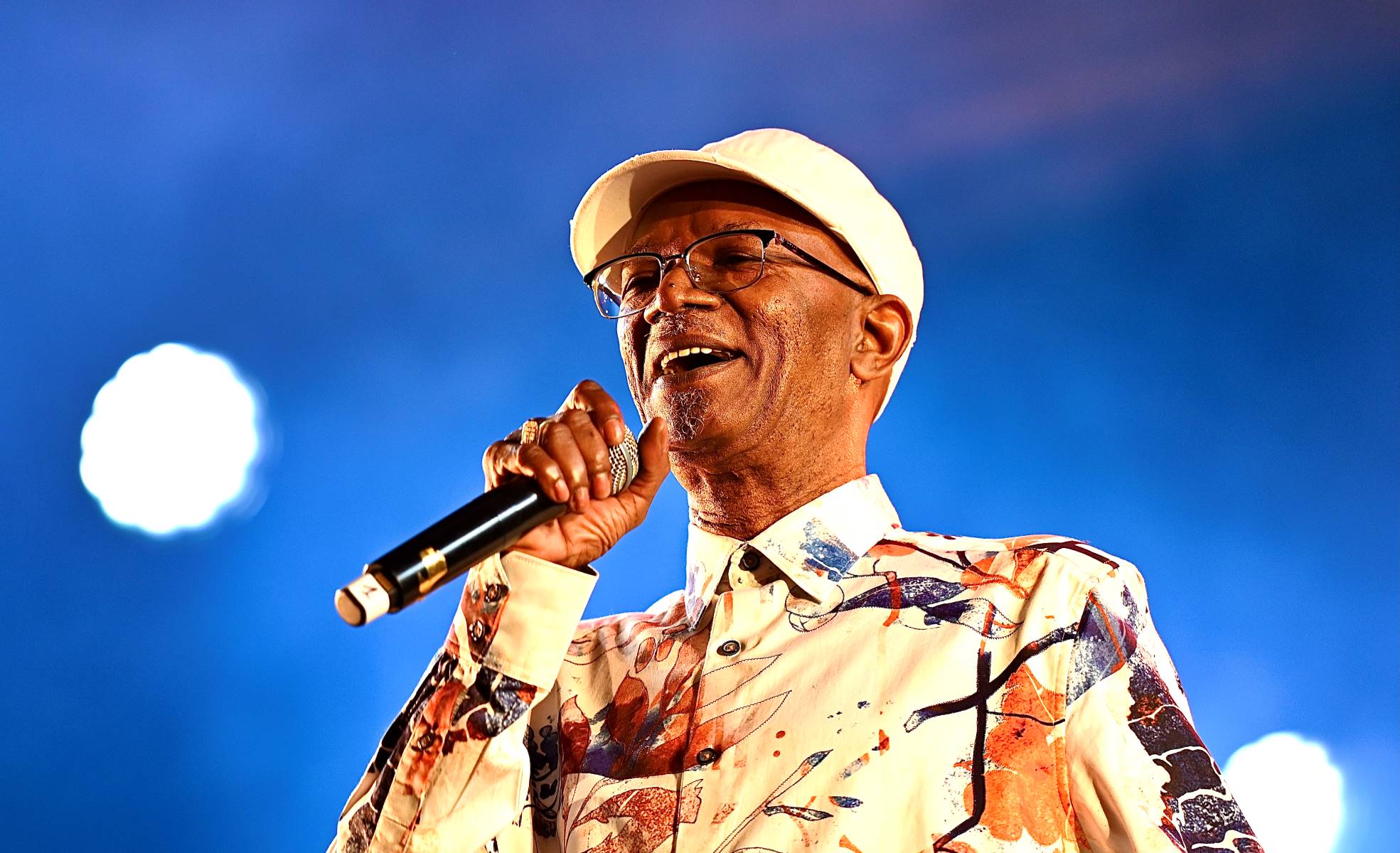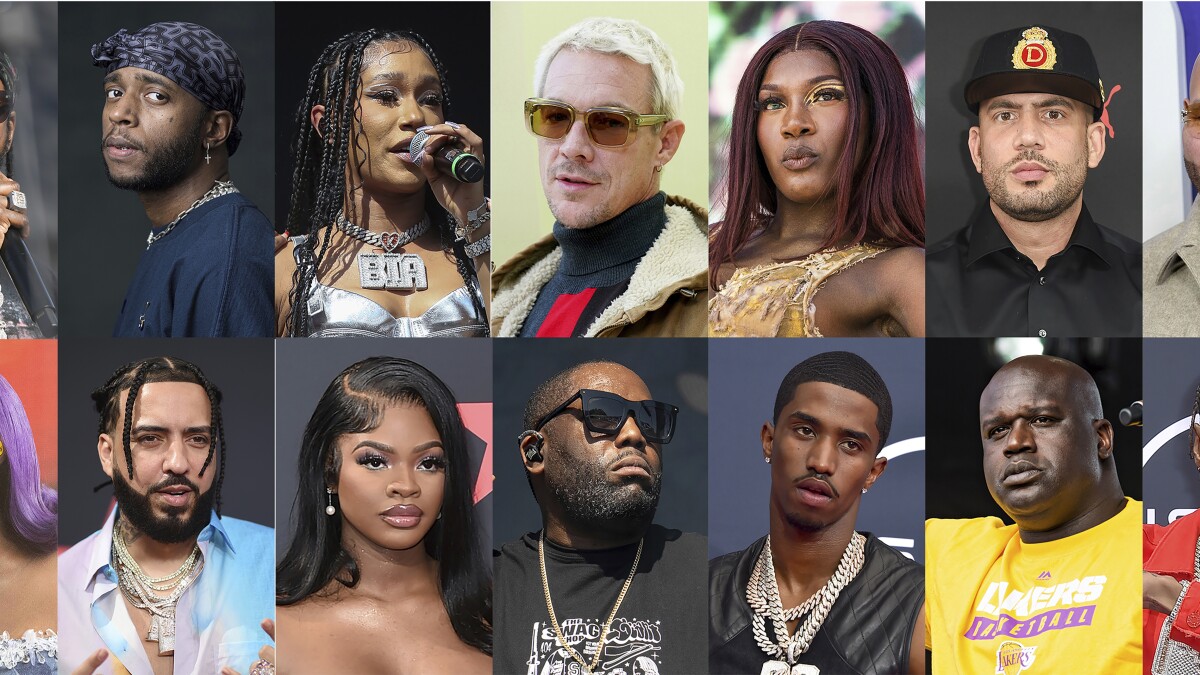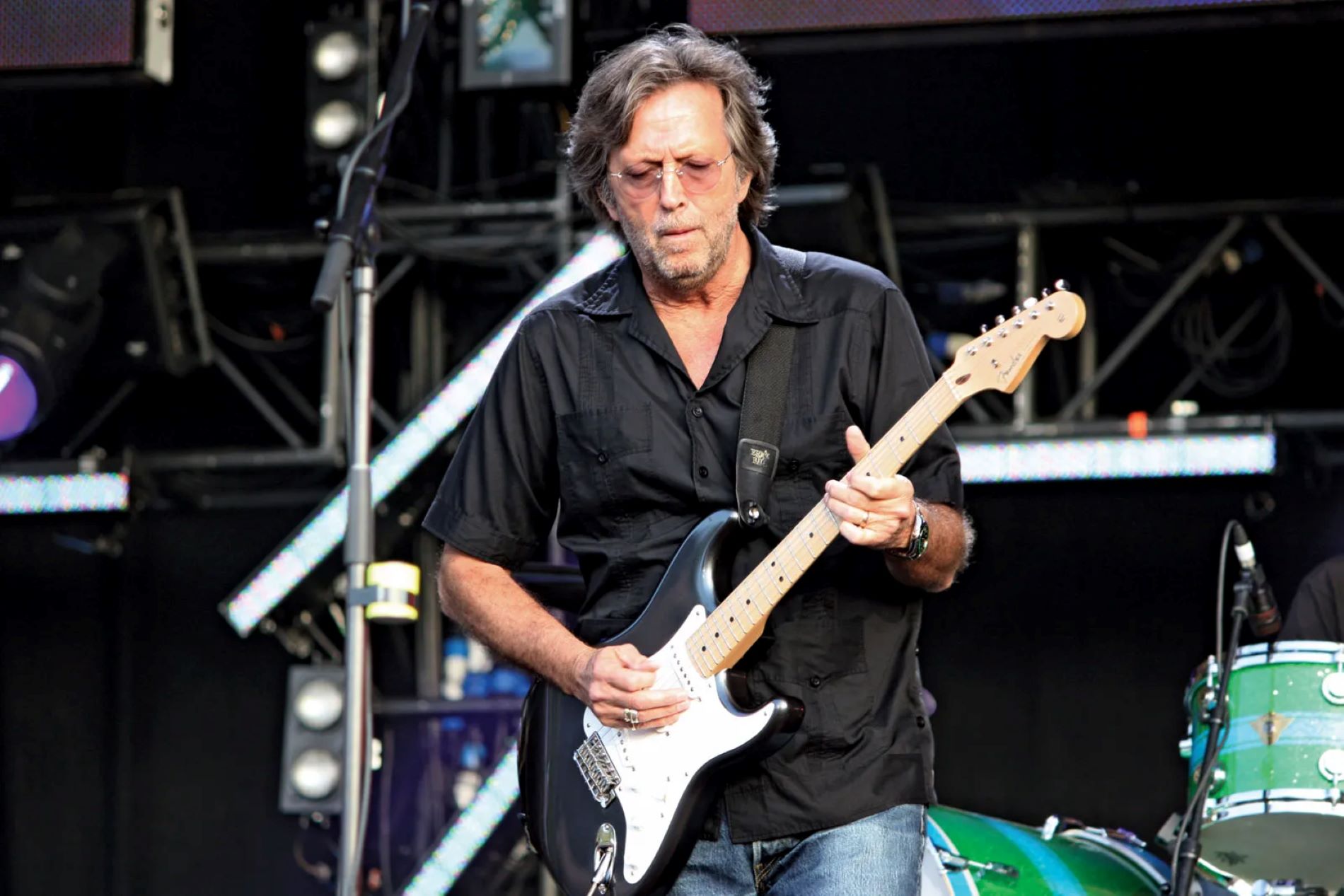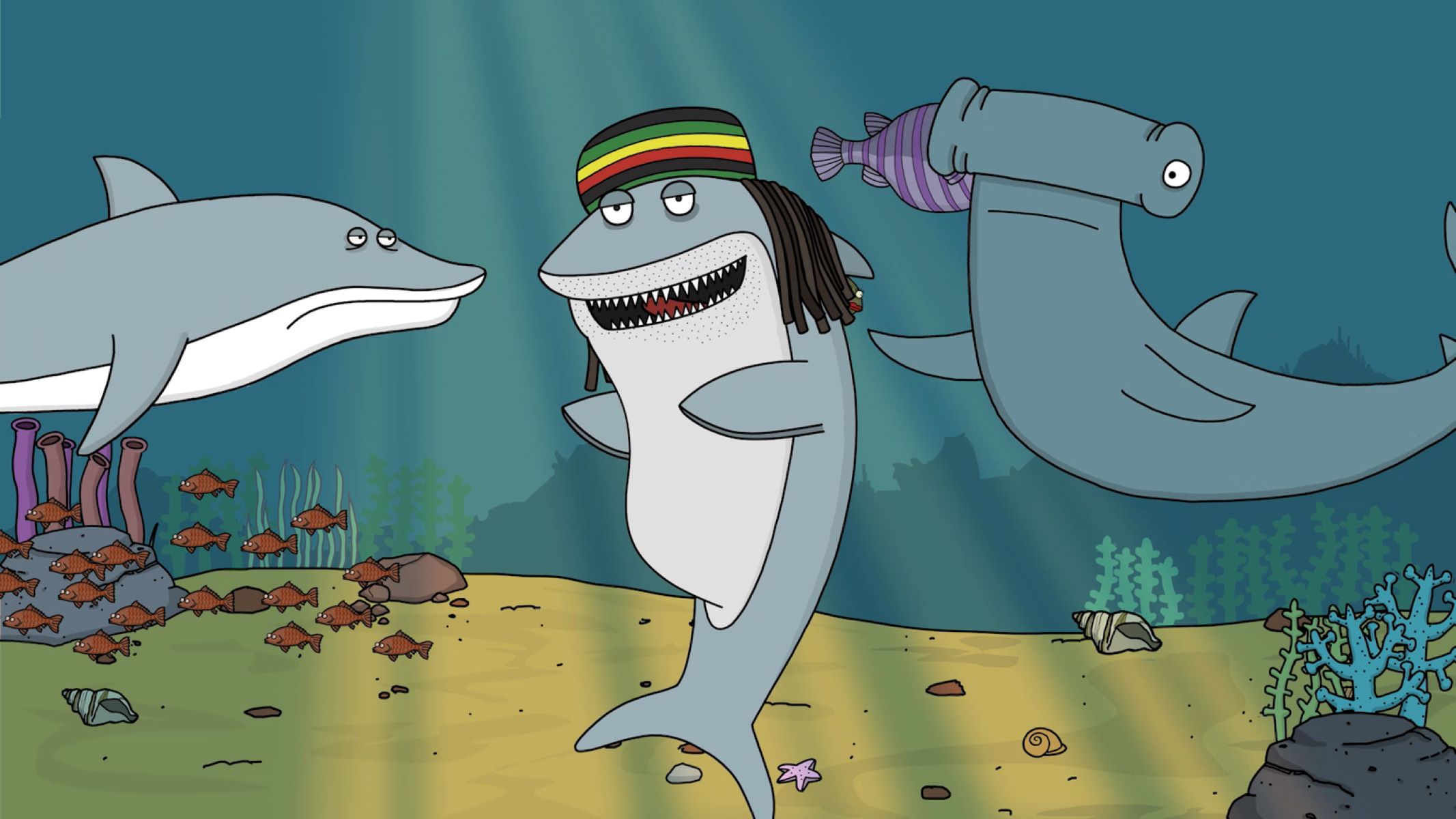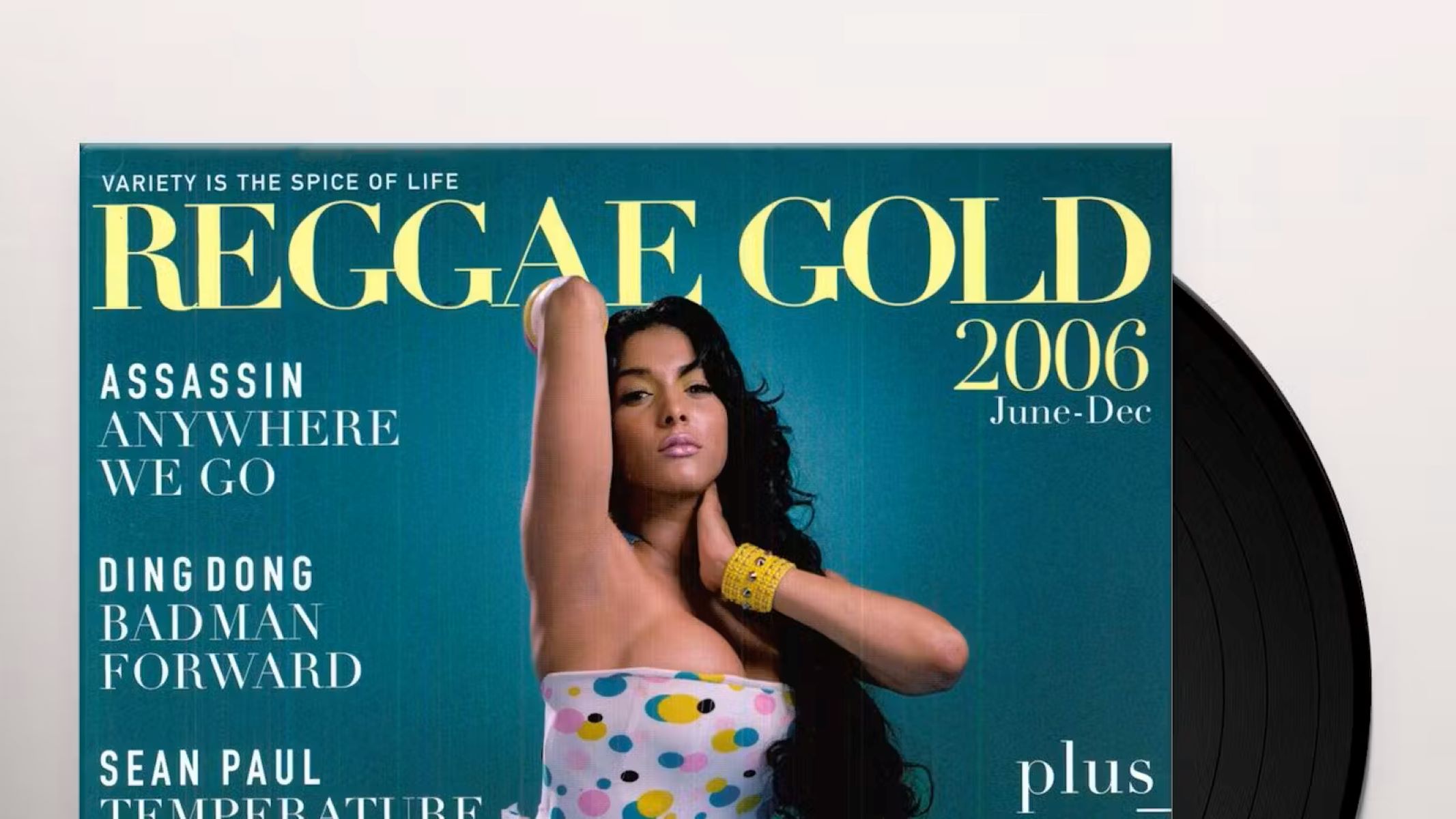

Reggae
Who Is The Best Reggae Artist
Modified: January 22, 2024
Discover the best music reggae artists and bands from around the world. Dive into the roots of reggae music and explore its influence on global culture.
(Many of the links in this article redirect to a specific reviewed product. Your purchase of these products through affiliate links helps to generate commission for AudioLover.com, at no extra cost. Learn more)
Table of Contents
- Introduction
- Brief History of Reggae Music
- Characteristics and Elements of Reggae Music
- Influential Reggae Artists and Bands
- Notable Reggae Albums
- Impact and Global Recognition of Reggae Music
- Reggae Subgenres and Fusion with Other Music Styles
- The Evolution of Reggae Music Over Time
- Comparing and Evaluating the Best Reggae Artists and Bands
- Conclusion
Introduction
Reggae music is a genre that has captured the hearts and minds of people around the world. Its infectious rhythms, heartfelt lyrics, and positive vibes have made it a beloved and influential genre in the music industry. Reggae emerged in Jamaica in the late 1960s, and since then, it has become a cultural phenomenon, representing the spirit of the Jamaican people and their struggles and triumphs. The roots of reggae can be traced back to the earlier Jamaican music styles of ska and rocksteady. However, it was through the pioneering efforts of artists like Bob Marley, Toots and the Maytals, and Jimmy Cliff that reggae gained international recognition and popularity. Their music brought reggae’s politically charged messages of social justice, love, and unity to a global audience. Reggae music is known for its distinctive sound, characterized by a syncopated rhythm, heavy basslines, and offbeat guitar strumming. It is often accompanied by powerful horn sections and intricate drum patterns. The lyrics of reggae songs often address social and political issues, promoting messages of equality, peace, spirituality, and the celebration of life. Over the years, reggae has evolved and branched out into various subgenres, including dancehall, reggae fusion, dub, and roots reggae. Artists like Shaggy, Sean Paul, and Damian Marley have embraced these subgenres and brought their own unique spin to reggae music, blending it with elements of hip-hop, R&B, and other popular music styles. The impact of reggae music extends far beyond its birthplace in Jamaica. It has inspired countless musicians from different genres and has influenced the development of other styles like punk, dubstep, and even hip-hop. Reggae festivals and events are held worldwide, attracting music lovers from all walks of life who gather to immerse themselves in the vibrant and uplifting sounds of reggae. In this article, we will delve into the history, characteristics, and evolution of reggae music. We will explore the contributions of influential reggae artists and bands, discuss notable reggae albums, and examine the impact of reggae on global music culture. So sit back, relax, and get ready to embark on a musical journey through the world of reggae.
Brief History of Reggae Music
Reggae music originated in the late 1960s in Jamaica, a small Caribbean island known for its rich musical heritage. It evolved from earlier Jamaican music styles such as ska and rocksteady, which were popular in the 1950s and 1960s. Reggae’s distinctive sound and style were shaped by the social and political climate of Jamaica at the time. The term “reggae” was coined by Toots and the Maytals with their hit song “Do the Reggay” in 1968, though the genre itself had been developing for a few years prior. One of the key figures in the development and popularization of reggae was the legendary Bob Marley. Through his timeless songs and charismatic presence, Bob Marley became the face of reggae music and its most iconic ambassador. Reggae music gained international recognition in the 1970s, primarily due to Bob Marley’s success and the formation of The Wailers, his band. Their album “Catch a Fire” and the follow-up “Burnin'” introduced reggae to a global audience. The powerful and socially conscious lyrics of Bob Marley’s songs struck a chord with people seeking musical expressions of hope, unity, and freedom. Reggae’s rise in popularity was not only due to Bob Marley, but also other talented artists such as Jimmy Cliff, Peter Tosh, and Burning Spear. Each of these artists brought their own unique style and perspective to reggae music, contributing to its ever-growing popularity and influence. During the 1980s and 1990s, reggae music continued to evolve and diversify. The emergence of dancehall music, with its faster beats and more explicit lyrics, brought a new energy to the reggae scene. Artists like Shabba Ranks, Buju Banton, and Shaggy became popular ambassadors of dancehall, pushing the boundaries of the genre and introducing reggae music to a younger audience. In recent years, reggae fusion has gained significant traction, with artists like Sean Paul and Damian Marley blending reggae with elements of hip-hop, R&B, and pop. This fusion of styles has helped to keep reggae music relevant and appealing to a wider audience. Today, reggae music continues to be celebrated and enjoyed by people all over the world. Its uplifting and positive vibes, coupled with its powerful messages of social justice and unity, have made it a timeless genre that transcends boundaries. Reggae festivals and events, such as the iconic Reggae Sumfest in Jamaica, attract music enthusiasts from all walks of life who come together to celebrate the spirit and legacy of reggae music. In the next sections, we will explore the characteristics and elements of reggae music, delve into the influential reggae artists and bands of the past and present, and discuss notable reggae albums that have shaped the genre’s history. Get ready to immerse yourself in the soul-stirring rhythms and captivating melodies of reggae.
Characteristics and Elements of Reggae Music
Reggae music is characterized by its unique sound and rhythm, which sets it apart from other genres. The combination of various musical elements creates the distinct reggae style that has captivated audiences worldwide. Here are some of the key characteristics and elements that define reggae music: 1. Rhythm: Reggae is known for its syncopated rhythm characterized by a strong emphasis on the offbeat. This is often referred to as the “one-drop” rhythm, where the emphasis is placed on the third beat of the measure, giving reggae its distinct feel and groove. The rhythm is typically driven by bass and drum patterns, creating a solid foundation for the music. 2. Basslines: The bass in reggae music plays a crucial role in driving the rhythm and creating a deep, powerful sound. The basslines are often emphasized, with prominent slides, melodic fills, and walking patterns that add depth and richness to the music. 3. Guitar: The guitar in reggae is typically used to play offbeat chords on the upbeat, creating the characteristic “skanking” sound. This rhythmic guitar technique contributes to the infectious groove and uplifting feel of reggae music. 4. Horn Sections: Many reggae songs feature horn sections that add a vibrant and lively element to the music. The horns, consisting of trumpets, trombones, and saxophones, create melodic lines and harmonies that enhance the overall sound and give reggae its signature brass sound. 5. Drumming: The drum patterns in reggae are typically focused on the snare and hi-hat, with an emphasis on the offbeat. The drummers use a combination of techniques such as rim shots, open hi-hats, and syncopated fills to create the infectious rhythm and energy of reggae music. 6. Lyrics: Reggae lyrics often tackle social and political issues, advocating for justice, peace, and equality. The lyrics often carry a strong message of hope, empowerment, and love, resonating with listeners on a deeper level. Reggae songs often contain spiritual and uplifting themes, reflecting the Rastafarian beliefs and principles that are deeply rooted in reggae culture. 7. Dubbing: Dub music, a subgenre of reggae, introduced the concept of dubbing, which involves remixing and manipulating the original reggae tracks. Dub music emphasizes effects such as echo, reverb, and delay, creating a psychedelic and atmospheric sound that pushes the boundaries of traditional reggae. These characteristics and elements come together to create the unmistakable sound and feel of reggae music. The infectious rhythms, powerful lyrics, and positive vibes make reggae a genre that resonates with people of all backgrounds and cultures. Whether it’s the uplifting melodies or the socially conscious messages, reggae has a way of touching the soul and bringing people together.
Influential Reggae Artists and Bands
Reggae music has been shaped by the incredible talent and influence of numerous artists and bands throughout its history. These individuals have not only contributed to the development of the genre but have also left a lasting impact on the music industry as a whole. Here are some of the most influential reggae artists and bands: 1. Bob Marley and The Wailers: Bob Marley is undoubtedly one of the most iconic figures in reggae music. He, along with his band The Wailers, brought reggae to the international stage with their powerful lyrics and infectious rhythms. Songs like “One Love,” “No Woman, No Cry,” and “Redemption Song” cemented Bob Marley’s status as a global reggae superstar. 2. Jimmy Cliff: Known for his soulful voice and uplifting songs, Jimmy Cliff played a pivotal role in popularizing reggae music outside of Jamaica. His breakthrough hit “Many Rivers to Cross” showcased his emotional depth and musical prowess, making him a respected and influential figure in the reggae genre. 3. Toots and the Maytals: Considered one of the pioneers of reggae music, Toots and the Maytals brought the term “reggae” to the world with their hit song “Do the Reggay.” Their energetic and soulful performances, along with their catchy melodies, helped to shape the sound and style of reggae music. 4. Peter Tosh: As a founding member of The Wailers and later as a solo artist, Peter Tosh made significant contributions to reggae music. His politically charged songs like “Legalize It” and “Equal Rights” showcased his strong sense of activism and dedication to social justice. 5. Burning Spear: Winston Rodney, known as Burning Spear, is a reggae artist who has consistently delivered powerful and thought-provoking music. His deep, resonant voice and spiritual lyrics have made him an influential figure in the reggae community, with songs like “Marcus Garvey” and “Slavery Days” becoming anthems of resistance against injustice. 6. Dennis Brown: Referred to as the “Crown Prince of Reggae,” Dennis Brown is known for his smooth vocal style and romantic reggae ballads. His soulful voice and timeless hits like “Love Has Found Its Way” and “Revolution” have earned him a prominent place in reggae music history. 7. Third World: This Jamaican reggae-fusion band combined elements of reggae, funk, and R&B to create their unique sound. Third World’s catchy melodies, tight harmonies, and socially conscious lyrics resonated with audiences worldwide, making them one of the most successful reggae bands of all time. These influential reggae artists and bands have not only left their mark on the genre but have also paved the way for future generations of reggae musicians. Their music continues to inspire and uplift listeners, spreading the positive vibrations of reggae music across the globe.
Notable Reggae Albums
Throughout the history of reggae music, several albums have achieved iconic status and have become essential listening for both reggae enthusiasts and music lovers in general. These albums have not only showcased the talents of the artists but have also managed to capture the essence of reggae music. Here are some notable reggae albums that have left a lasting impact: 1. “Legend” by Bob Marley and The Wailers (1984): This compilation album by Bob Marley and The Wailers is a timeless classic and one of the best-selling reggae albums of all time. It features a collection of their greatest hits, including “Three Little Birds,” “Jamming,” and “Redemption Song.” “Legend” showcases the breadth and depth of Bob Marley’s songwriting and the infectious energy of The Wailers. 2. “Catch a Fire” by The Wailers (1973): Considered a groundbreaking album in the evolution of reggae, “Catch a Fire” marked The Wailers’ international debut. Produced by Chris Blackwell, the album blended reggae with elements of rock and showcased their socially conscious lyrics. Songs like “Concrete Jungle” and “Stir It Up” propelled The Wailers into the global spotlight. 3. “Exodus” by Bob Marley and The Wailers (1977): Regarded as one of the greatest reggae albums of all time, “Exodus” is a masterpiece of Bob Marley’s discography. Featuring hits like “Jamming,” “One Love/People Get Ready,” and the powerful title track, “Exodus” experimented with different musical styles while staying true to the roots of reggae. 4. “Marcus Garvey” by Burning Spear (1975): This album by Burning Spear is a cornerstone of roots reggae. With its powerful messages of black pride, social justice, and spirituality, “Marcus Garvey” resonated with audiences around the world. The album’s title track became an anthem for the Pan-African movement, solidifying Burning Spear’s status as a reggae pioneer. 5. “True Democracy” by Steel Pulse (1982): Steel Pulse’s “True Democracy” is a politically charged album that addresses social and racial injustices. With songs like “Chant a Psalm” and “Steppin’ Out,” the band’s signature fusion of reggae, punk, and roots music creates a powerful and thought-provoking experience for listeners. 6. “Night Nurse” by Gregory Isaacs (1982): Known as the “Cool Ruler,” Gregory Isaacs was a master of lovers rock, a romantic subgenre of reggae. “Night Nurse” showcases Isaacs’ smooth and soulful vocals, with hits like the title track and “Private Beach Party” highlighting his ability to evoke passion and emotion through his music. These albums represent the diversity and depth of reggae music, each with its own unique sound and message. They have become timeless classics and have played a significant role in shaping the reggae genre and its continued global influence. Whether they are capturing the spirit of rebellion, spreading messages of love and unity, or exploring the depths of human emotions, these albums continue to inspire and resonate with listeners around the world.
Impact and Global Recognition of Reggae Music
Reggae music has had a profound impact on both the music industry and society as a whole. From its humble beginnings in Jamaica, reggae has become a global phenomenon, influencing countless musicians and capturing the hearts of people worldwide. Here are some key aspects of the impact and global recognition of reggae music: 1. Cultural Influence: Reggae has become synonymous with Jamaican culture and has served as a vehicle for the expression of Jamaican identity and experiences. It has brought international attention to the vibrant and rich cultural heritage of the island nation, and its influence can be seen in various aspects of Jamaican life, from fashion and art to language and spirituality. 2. Social and Political Significance: Reggae has been a powerful medium for social and political commentary. Artists like Bob Marley used their music as a platform to address issues such as poverty, inequality, colonialism, and racism. Reggae’s message of unity, peace, and social justice resonated with marginalized communities globally, making it a symbol of resistance and liberation. 3. Global Reach: Reggae music has transcended geographic boundaries and has found fans in every corner of the world. From Africa to Europe, Asia to the Americas, reggae festivals and events are held globally, attracting millions of people annually. The universal appeal of reggae can be attributed to its infectious rhythm, positive messages, and the ability of the music to evoke emotions and connect people across cultures. 4. Influence on Other Genres: Reggae’s influence extends far beyond the genre itself. It has served as a source of inspiration for various music styles, including punk, hip-hop, and electronic music. The laid-back grooves, socially conscious lyrics, and distinctive instrumentation of reggae have shaped the sound of many contemporary artists and genres. 5. Bob Marley as a Global Icon: Bob Marley’s impact on the world of music cannot be overstated. He not only popularized reggae music but also became an international ambassador for Jamaican culture and the Rastafarian movement. His iconic image, powerful lyrics, and charismatic stage presence have made him a symbol of peace, love, and unity, and his music continues to resonate with new generations. 6. Influence on Fashion and Style: Reggae’s influence goes beyond music and has left an indelible mark on fashion and style. The vibrant colors, relaxed silhouette, and distinctive patterns associated with reggae culture have become staples in fashion and are recognized globally as symbols of individuality and self-expression. The global recognition of reggae music can be seen through its inclusion in UNESCO’s Representative List of the Intangible Cultural Heritage of Humanity, as well as the establishment of the International Reggae Day celebrated on July 1st each year. Reggae’s impact on society, its ability to unite people, and its messages of peace and love have made it a powerful force in the world of music and beyond.
Reggae Subgenres and Fusion with Other Music Styles
Reggae music has expanded and diversified over the years, giving rise to various subgenres and fusion with other music styles. These developments have resulted in a richness and versatility within the reggae genre. Here are some notable reggae subgenres and instances of reggae fusion: 1. Dancehall: Dancehall emerged in the late 1970s and brought a more energetic and contemporary sound to reggae. It is characterized by its faster tempo, use of digital instrumentation, and lyrics focusing on partying, love, and social commentary. Artists such as Shabba Ranks, Sean Paul, and Beenie Man have popularized dancehall both in Jamaica and internationally. 2. Reggae Fusion: Reggae fusion combines reggae with elements of other genres, creating a blend of styles and sounds. Artists like Damian Marley, Shaggy, and Major Lazer have successfully fused reggae with hip-hop, R&B, pop, and electronic music, resulting in chart-topping hits and a broad appeal to diverse audiences. 3. Dub: Dub music emerged in the 1960s as a subgenre of reggae, characterized by manipulating and remixing original reggae tracks. Dub emphasizes instrumental versions, heavy use of effects, and extended instrumental sections, creating a psychedelic and atmospheric sound. Dub artists such as Lee “Scratch” Perry and King Tubby pioneered this innovative genre. 4. Roots Reggae: Roots reggae is deeply influenced by Rastafarian beliefs and carries a spiritual and political tone. It emphasizes socially conscious lyrics, African rhythms, and a focus on black identity and cultural heritage. Artists such as Burning Spear, Black Uhuru, and Steel Pulse have been instrumental in the development and promotion of roots reggae. 5. Reggae Rock: Reggae rock combines reggae’s laid-back rhythms with the energy and instrumentation of rock music. Bands like Sublime, Slightly Stoopid, and Rebelution incorporate reggae elements into their rock-infused sound, resulting in a genre that appeals to fans of both reggae and rock music. 6. Reggaeton: Reggaeton originated in the late 1990s and combines elements of reggae, hip-hop, and Latin American music, particularly from Puerto Rico. Artists such as Daddy Yankee, Don Omar, and J Balvin have popularized reggaeton globally, creating a fusion of Caribbean and Latin rhythms with reggae influences. These subgenres and fusions have expanded the reach and appeal of reggae music, allowing it to connect with broader audiences and cross cultural boundaries. The experimentation and blending of different styles have resulted in fresh sounds and further cemented reggae’s status as a dynamic and evolving genre. Reggae’s ability to fuse with other music styles is a testament to its versatility and adaptability. It continues to inspire artists to explore new possibilities while staying true to the core elements that define reggae music. As a result, reggae remains a vibrant and influential genre, continuously evolving and leaving its mark on the global music landscape.
The Evolution of Reggae Music Over Time
Reggae music has undergone a remarkable evolution since its inception, adapting and incorporating various influences throughout the years. From its roots in ska and rocksteady to the emergence of dancehall and reggae fusion, the genre has displayed a continuous evolution and growth. Here is a look at the key stages of reggae’s evolution over time: 1. Ska and Rocksteady: Reggae’s roots can be traced back to the early 1960s with the development of ska, a lively and upbeat style characterized by its syncopated rhythms. Ska eventually evolved into rocksteady, which introduced slower tempos and emphasized the bassline. Artists such as The Skatalites, Prince Buster, and Alton Ellis played pivotal roles in these early stages of reggae’s development. 2. The Rise of Bob Marley and The Wailers: In the late 1960s, Bob Marley and The Wailers brought reggae to the international stage and popularized it worldwide. Their fusion of reggae with soul, rock, and Rastafarian spirituality led to a unique sound that resonated with people around the globe. Bob Marley’s powerful lyrics and charismatic presence made him a global icon of reggae music. 3. Reggae’s Golden Era: The 1970s witnessed the golden era of reggae, with an abundance of creativity and innovation within the genre. Artists such as Jimmy Cliff, Toots and the Maytals, and Peter Tosh made significant contributions to reggae’s growth and popularity. The music of this era often addressed social and political issues, focusing on themes of liberation and African identity. 4. Dancehall and Digital Reggae: In the 1980s, reggae underwent a transformation with the rise of dancehall. This subgenre introduced a faster tempo, heavier basslines, and the use of digital instrumentals. Artists like Shabba Ranks, Buju Banton, and Yellowman popularized dancehall and brought a fresh energy to reggae music. 5. Reggae Fusion and Global Popularity: Throughout the 1990s and into the 21st century, reggae continued to evolve by fusing with other genres such as hip-hop, R&B, and pop. Artists like Shaggy, Sean Paul, and Damian Marley successfully blended reggae elements with mainstream sounds, capturing international audiences and reshaping the perception of reggae on a global scale. 6. Contemporary Reggae: In recent years, reggae has continued to evolve with artists pushing the boundaries and experimenting with new sounds and styles. Artists like Chronixx, Protoje, and Koffee have revived a sense of roots reggae while infusing it with modern influences, ensuring reggae’s continued relevance and growth. Reggae’s evolution illustrates the genre’s ability to adapt to changing times and embrace a wide range of influences. It has evolved from its ska and rocksteady roots to incorporate elements of dancehall, fusion, and other genres, while still maintaining its distinct sound and socially conscious messages. As reggae continues to evolve and inspire new generations, its legacy as a powerful and influential musical genre remains secure.
Comparing and Evaluating the Best Reggae Artists and Bands
The world of reggae music is filled with exceptionally talented artists and bands who have contributed to the genre’s growth and popularity. While it’s challenging to definitively determine the “best” reggae artists and bands, we can compare and evaluate their impact, artistic prowess, and cultural significance. Here are a few notable artists and bands that have made a lasting impact on reggae: 1. Bob Marley and The Wailers: Undoubtedly, Bob Marley and The Wailers hold a special place in reggae’s history. Bob Marley’s powerful voice, captivating lyrics, and iconic stage presence propelled him to global stardom. The Wailers’ infectious rhythms and harmonies added an extra layer of depth to their music. Their timeless hits like “One Love” and “No Woman, No Cry” continue to resonate with audiences worldwide. 2. Burning Spear: Winston Rodney, known as Burning Spear, has consistently delivered spiritually rich and politically charged reggae music. His distinctive voice carries profound messages of African pride and social justice. With songs like “Marcus Garvey” and “Slavery Days,” Burning Spear’s contributions to roots reggae have left an indelible mark on the genre. 3. Toots and the Maytals: Toots and the Maytals were pivotal in popularizing the term “reggae” with their hit song “Do the Reggay.” Their energetic and soulful performances, coupled with catchy melodies, became synonymous with the early reggae sound. Toots Hibbert’s powerful voice and the group’s infectious tunes created a lasting impact on reggae’s development. 4. Steel Pulse: Steel Pulse has been instrumental in blending reggae with a strong social and political consciousness. Their music addresses themes of racial injustice and oppression, resonating with listeners who sought music that spoke truth to power. With albums like “Handsworth Revolution,” Steel Pulse emerged as one of the leading reggae bands of the late 1970s. 5. Dennis Brown: Known as the “Crown Prince of Reggae,” Dennis Brown’s soulful voice and romantic reggae ballads captivated audiences. His smooth, melodic style made him one of Jamaica’s most beloved and influential artists. Hits such as “Love Has Found Its Way” and “Revolution” showcased his versatility and contributed to reggae’s evolution. 6. Damian Marley: Son of Bob Marley, Damian Marley has carved his own path in reggae music. His fusion of reggae with hip-hop and dancehall elements has earned him widespread acclaim. Damian Marley’s thought-provoking lyrics, social consciousness, and influential albums like “Welcome to Jamrock” have solidified his status as a standout reggae artist. It is important to note that reggae is a vast genre with countless talented artists and bands. Other notable mentions include Jimmy Cliff, Peter Tosh, Black Uhuru, and Third World, who have all made significant contributions to reggae’s legacy. Comparing and evaluating reggae artists and bands is subjective, as each artist brings their own unique style and message to the genre. Each artist contributes to the diverse fabric of reggae music, making it a universally loved genre that continues to inspire and uplift listeners worldwide.
Conclusion
Reggae music has left an indelible mark on the music industry and has become a powerful force for change and unity. From its humble beginnings in Jamaica, reggae has evolved into a globally recognized genre, captivating audiences with its infectious rhythms, powerful lyrics, and positive vibes. Throughout its history, reggae has been shaped by influential artists and bands who have pushed the boundaries of the genre and brought its messages of social justice, love, and spirituality to the forefront. From the legendary Bob Marley and The Wailers to the soulful tones of Burning Spear, reggae artists have used their music as a platform to address societal issues and advocate for positive change. Reggae’s impact extends far beyond its birthplace, reaching every corner of the world and resonating with people of all cultures and backgrounds. The genre’s ability to fuse with other musical styles, such as hip-hop, rock, and Latin music, has allowed it to continuously evolve and maintain its relevance. The global recognition of reggae is a testament to its universal appeal and the profound impact it has made on listeners worldwide. Reggae festivals, events, and celebrations are held around the globe, creating spaces where people can come together, embrace the music, and experience the positive energy and sense of community that reggae embodies. As reggae continues to evolve and inspire new generations of artists, its legacy and influence remain unparalleled. From the roots reggae sounds of the past to the contemporary fusions and subgenres, reggae’s soul-stirring rhythms and powerful messages will continue to captivate audiences for generations to come. So whether you’re experiencing the timeless classics of Bob Marley, the modern fusion of Damian Marley, or the socially conscious lyrics of Burning Spear, reggae music invites you to embrace its positive vibrations and join in the celebration of love, unity, and justice. In conclusion, reggae music stands as an enduring testament to the power of music to transcend borders and inspire positive change. It is a genre that has not only shaped the musical landscape but has also ignited movements and touched the hearts of millions. As we continue to groove to its infectious rhythms, reggae will forever hold its place as a genre that spreads joy, spreads love, and spreads the message of unity to the world.

